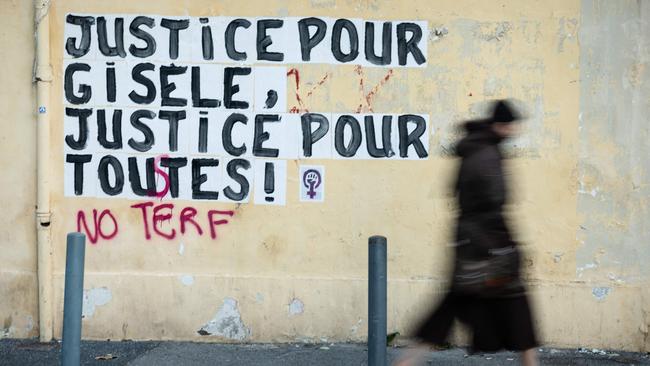Gisele Pelicot case adds impetus for adding consent to rape law
France is being urged to add the notion of consent to its rape law without delay to comply with the Council of Europe’s Istanbul convention on sexual violence.

The notion of consent is likely to be added to the French legal definition of rape in light of the Dominique Pelicot court case.
France must adopt the criterion without delay, a panel of MPs has concluded, to join the 14 other European Union states that have changed laws to comply with the Council of Europe’s Istanbul convention on sexual violence.
French law requires proof that an assailant acted with violence, coercion, threat or surprise.
“Nearly 10 years after the birth of the MeToo movement and as freshly illustrated by the ‘Mazan’ trial, the battle against the culture of rape must be a priority,” the report said.
The Provencal village of Mazan was home to Dominique and Gisele Pelicot, where he drugged his wife and invited more than 80 men to rape her over a decade. Pelicot was last month given 20 years in prison, the maximum sentence for aggravated rape, and 50 other identified assailants were also jailed.
Many of the accused men told the court they had not knowingly committed rape because they believed Pelicot’s word that his wife, though unconscious, was complicit in a sex game. Several defence lawyers argued that their acts did not meet the legal definition of rape.
The cross-party inquiry was led by Veronique Riotton, an MP for President Macron’s Renaissance party, and Marie-Charlotte Garin, an MP with the Ecologists.
It said clarity was needed because a “climate of impunity endures”, with society still subscribing to stereotypes about women inviting sexual assault.
In England and Wales, consent was given a statutory definition in rape law in 2003. Northern Ireland and Scotland followed suit in 2008 and 2009 respectively.
More than 90 per cent of rape cases are dismissed in France and very few end in convictions.
In 2023, 34,500 cases of rape against women were recorded by French police and courts convicted 1800 men of rape.

The authorities estimate that only 6 per cent of women who have been sexually assaulted report their attacks to police.
“The new definition must state that consent is specific, must be given freely and can be withdrawn at any moment,” the inquiry added.
The inquiry was set up in 2023, well before the Pelicot case made news.
In March last year, Macron backed a change in the law to include consent.
Three bills have been drafted but have yet to reach the National Assembly, the lower house, owing to a consensus on the need for a cross-party bill.
This will now be drafted using the inquiry’s findings.
“We are not saying everything is simple and binary,” Garin said. “We’re saying that rape cannot just be characterised by violence, threat, constraint and surprise, because that leaves out hundreds of thousands of victims.”
Riotton said the MPs wanted to change the way police conduct rape investigations.
“We are giving different tools to the police and to the courts to be able to punish in other ways,” she said.
Macron’s government initially opposed the inclusion of the notion of consent in the rape law and joined Germany and Hungry in blocking the inclusion of a definition of rape in an EU directive on protecting women against violence.
French feminists accused Macron of failing to defend women until his U-turn last year when he supported the insertion of consent as a criterion in the French law.
Some experts, including feminist campaigners, have opposed the inclusion of consent because they say it reverses the burden, focusing attention on the behaviour of the victim and requiring them to prove they refused to take part in a sexual act.
Eric Dupond-Moretti, a defence lawyer who served as justice minister until last year, said the inclusion of a criterion of consent “puts the proof of consent on to the victim while the only person responsible for rape is the rapist”.
Julia Courvoisier, a legal expert, also opposed to the change, saying it would “move the debate on to the conduct of the woman making the accusation”.





To join the conversation, please log in. Don't have an account? Register
Join the conversation, you are commenting as Logout